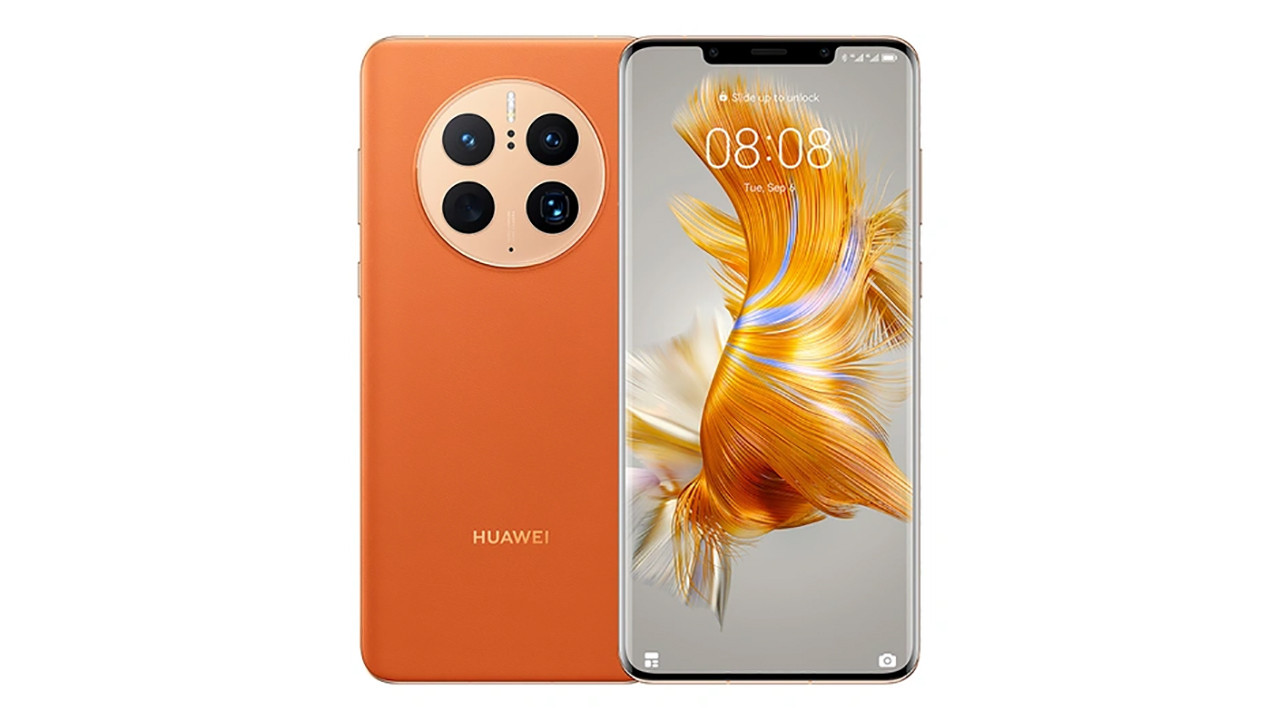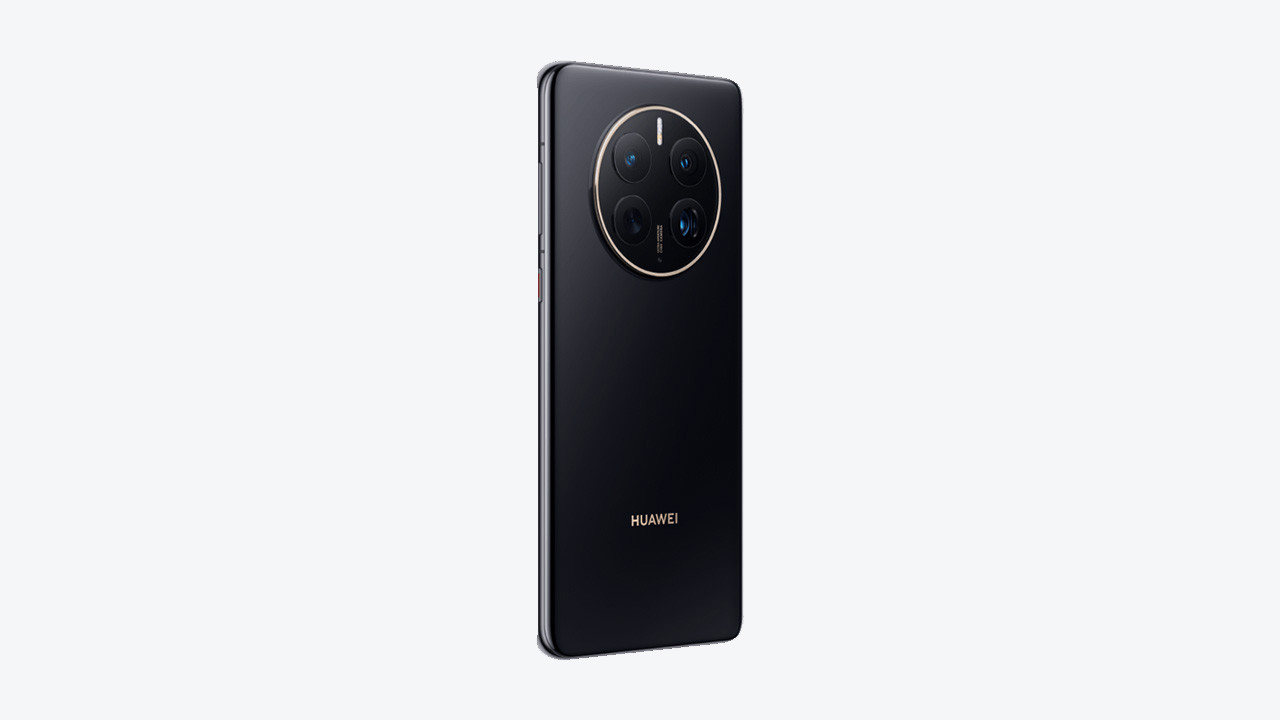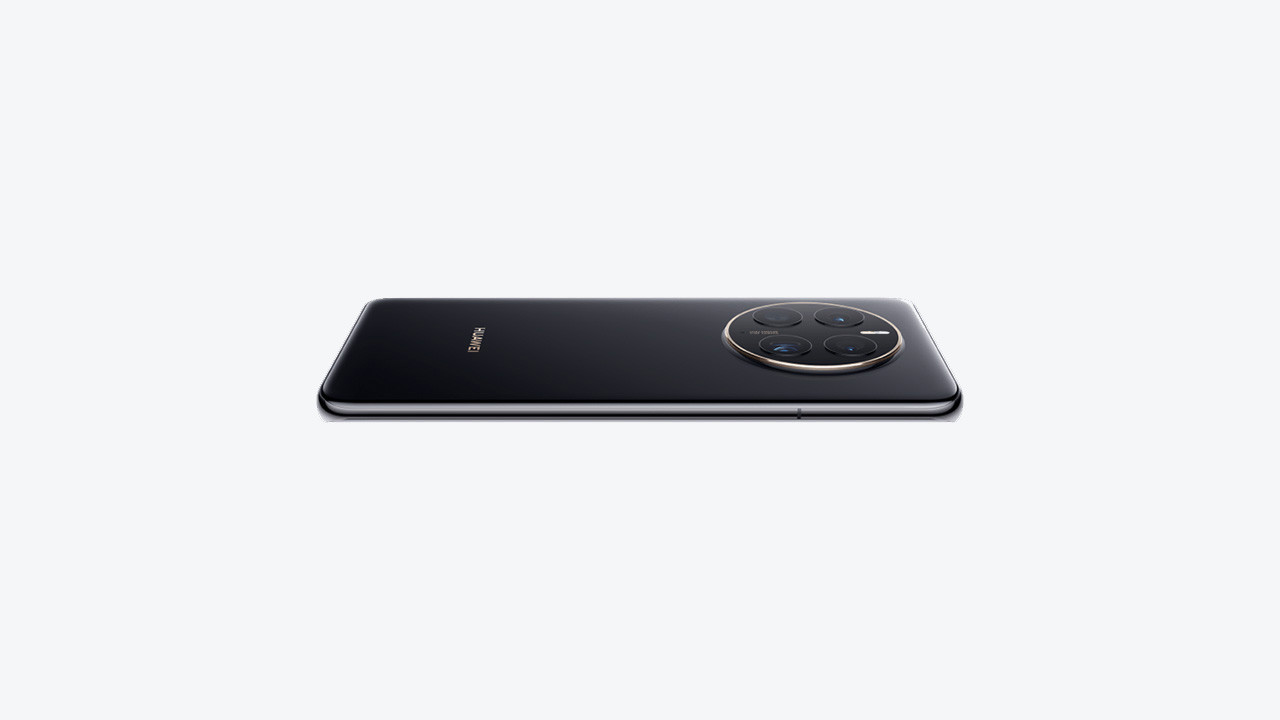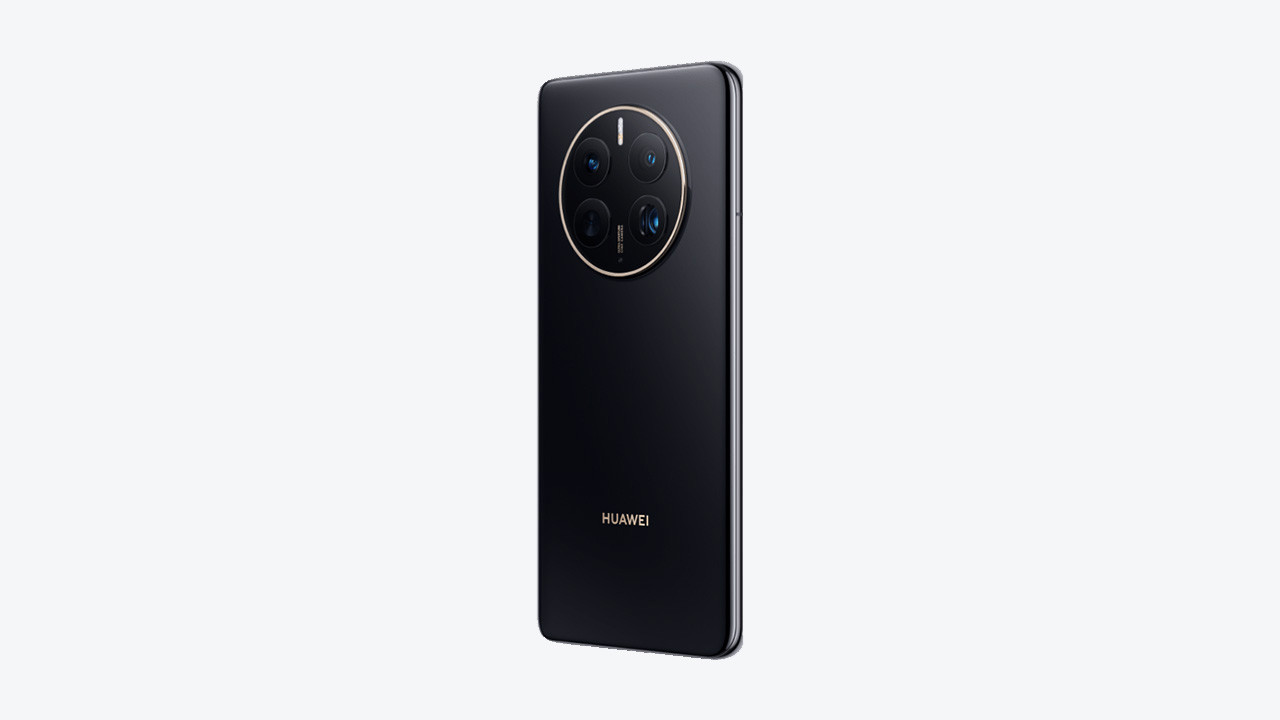The Mate 50 Pro has a really nice looking design. We see a giant OLED screen on the front and a large circular camera block on the back. While its performance capabilities are also top-notch, it appeals to those who want to have a flagship phone in every sense. I will talk about each of them in detail, but there is one subject that is not talked about enough in the technology media.
Many of the important camera features that Apple, Google and Samsung have adopted in the last 3 years were first seen on Huawei smartphones. These include technologies such as using a larger image sensor for better light reception, a high pixel density main camera for pixel binning, image stacking to recreate the effects of a long exposure shot, and more powerful image magnification.
Long story short, before Huawei had its troubles with Google, the Chinese tech giant’s phones were leading the way in mobile camera breakthroughs. During that time, the Google issue has somehow been resolved, Huawei has created its own ecosystem and now continues to put it on the camera with the newest Mate 50 Pro coming.

Huawei Mate 50 Pro Camera Features and Performance
There are some really important innovations in the camera. We want to talk about it first, because that’s where the most appealing part of the phone lies. Huawei introduced the new XMAGE display technology in the past months and used it for the first time in the Mate 50 Pro. Although the photos taken on smartphones have improved greatly in recent years, they are still not as layered as SLR cameras. This is because most phones only have a fixed aperture and rely on algorithms for bokeh, i.e. various software tricks. Along with the XMAGE display technology found in the Huawei Mate 50, physically variable aperture and algorithm adjustment are used together, resulting in noticeable photos.
Mate 50 Pro has a triple camera setup on the back, of which the main camera is called the 50 MP Ultra Aperture Camera, while next to it there is a 13 MP ultra wide angle camera and a 64 MP telephoto lens. The fourth circle here works as a proximity sensor.
The 50 MP Ultra Aperture main camera consists of a RYYB sensor. The most important feature is that it has a variable aperture between f/1.4 and 4.0. Because the larger the aperture in a camera lens, the higher the sensitivity, and with it, the quality of not only the shots you will take during the day, but also the shots you will take in night conditions will increase. With its large aperture, different layers are processed more precisely in bokeh focused, that is, depth of field photos, and it can produce photos with much clearer edge sections.
The 24mm main camera also features phase detection autofocus, laser focus and optical image stabilization. Thus, it provides great convenience in video shooting, hand shakes and image shakes are prevented during moving moments, and rapid focusing can be achieved at the same time.
Huawei used HDR Vivid mode on this phone at the video point. You can take advantage of HDR Vivid format for 4K and Full HD 30 frame video shooting. In this mode, the color and contrast ratio of the videos you shoot are improved, and you can get videos with more vivid colors compared to the video recordings you will make in normal mode.
The second camera in the camera block is a 64 MP telephoto camera, while the RYYB sensor and f / 3.5 aperture are used in this camera. Capable of optical zoom up to 3.5x, this camera can digital zoom up to 100x. We can say that Huawei’s Moon Photography continues in Mate 50 Pro. The third camera here is also a 13 MP ultra-wide-angle camera, and you can take beautiful wide landscape shots with this camera.
While the performance of each camera is top-notch indeed, when you go deeper into the camera interface, you’ll find that there’s a lot more going on. To take really good photos, I say especially mix the professional mode, look at the AI configurations, the follow mode has also been a useful tool at the video point.
There is another nice option in the video section, which is the Super Macro video mode. When you get very close to the subject while recording the video, you can switch to this mode by clicking the macro icon on the screen, and you can get clear results when you take close-up video samples. In the same way, you can take macro photos while taking photos.
The Mate 50 Pro is actually a 6-camera phone. There is also a dual camera above the screen. With the 13 MP selfie camera, you can take 78 degrees and 100 degrees wide-angle photos. Here, the 3D ToF lens is not only useful for portrait shots, but also a camera that you can use for face recognition.
There is more to talk about the Mate 50 Pro’s cameras, but the rest of the phone is also important. Now let’s move on to them.

What are the Huawei Mate 50 Pro Design and Display Features?
The Mate 50 Pro is a phone that looks pretty good with its overall design lines and screen, as well as the rear camera array. We have it in black color model, but there are also silver and orange color options. The phone, which has nested corners and curved lines towards the edges, has various protection methods. The phone has IP68 certification and it has water protection up to 6 meters. In addition, the screen is protected from scratches and impacts by Huawei Kunlun Glass protection method. There is also a protective film on the screen. There is also a silicone case in the box for those who want to protect the back of the phone extra.
The screen of the Mate 50 Pro consists of a 6.74-inch OLED panel. This screen has a refresh rate of up to 120Hz. It includes features such as 300Hz touch sampling and over 1 billion color reproduction. The screen resolution is 1212×2616 pixels and has a pixel density of 428 ppi. These values and features are really nice, but when you put them aside and take a look at the screen, you will understand what we mean. The phone has a really nice looking screen. The OLED screen experience is already preferred for devices with larger screens, let alone such devices. You get the equivalent of this technology in the Mate 50 Pro. We think that you will enjoy this screen, especially if you use video services such as Netflix, Disney+ and Amazon Prime. Of course, at this point, this screen is accompanied by a good sound system. The speakers on the top and bottom edge of the phone provide stereo sound and produce a really nice performance. In this sense, we can say that it offers a satisfying multimedia experience.
Meanwhile, the fingerprint reader is placed under the screen and works integrated into the screen. This system works fast, but alternatively you can use face recognition via the top camera.

Huawei Mate 50 Pro Features and Performance
So, how is the performance of the Mate 50 Pro? It should not be hard to guess that it is a powerful phone. The phone is powered by Snapdragon 8+ Gen1 processor, one of Qualcomm’s latest processors. The graphics processor Adreno 730. 8 GB of RAM and 256 GB of storage are included in the technical staff. You can also increase the memory via nano memory memory. And finally, the battery capacity of the phone is 4700 mAh. We can summarize the staff as follows.
Frankly, the Huawei Mate 50 Pro has hardware that will allow you to easily use any application and game you want to install and run. Everything you want to do with a phone in daily life, you can easily do with this phone. Instagram and Twitter, which are the social media applications we use most, work easily, and you get a fluent experience in web browsing. Especially if you want to shoot a lot of vlogs, record stories and share them on your Instagram page thanks to its camera capabilities, this phone will give you everything you want anyway. Among the camera features, there are wide options as we explained for content producers.
Mate 50 Pro will be a phone that you will use actively in business-oriented applications. Especially with the Huawei Cloud storage method, you can access your files from the cloud at any time and edit them on the phone. With the Huawei Cloud application, you can also move your phone files to the cloud, thereby freeing up the phone’s memory.
As for the game, don’t worry. We played PUBG for about 2 hours and it produced a very smooth performance in high graphic details. It is also very reasonable in heating, it manages to stay cool enough.
When it comes to battery performance, the Mate 50 Pro occupies a great place among flagship phones with over 100 hours of usage time. With up to 15 hours of web browsing and over 17 hours of video time, it offers a very adequate usage. So if you are looking for a phone with a long battery life, you can easily put the Mate 50 Pro at the top of your list. Charging is also very fast. There is a 66W charger and a 6A rated USB cable in the box. These are things we can’t see in Apple or Samsung. With the Mate 50 Pro’s 66W SuperCharger support, we were able to charge the phone 45 percent in 15 minutes and 79 percent in half an hour. The phone was able to charge to full capacity in just 41 minutes. If you want wireless charging, there is also 50W SuperCharge support here. Thus, you can quickly charge it wirelessly.

Huawei Mate 50 Pro Software Features and Google Support
Huawei Mate 50 Pro comes with a new operating system. The phone has an EMUI 13 interface based on the HarmonyOS 3.0 operating system. There are significant differences in the new version compared to the previous version. This interface includes customization options, themes, widgets and more. In particular, more functional application shortcuts are offered compared to EMUI 12, it includes resizable smart folders, it brings better sharing options, and it draws attention to improvements in security and privacy.
Let’s start with the most obvious first. The phone has an always-on display mode, and there are loads of different clock skins here. You can choose any of them you want. If that’s not enough, you can download theme options and lots of AODs. There are many options in the AOD, namely Active Standby Screen market, some of them are paid, some are free, you can choose what you want from here.
Going back to the home screen, you’ll find all the installed apps here, but of course you have the option to choose between the standard layout and the app drawer layout. As you can customize it, you can also customize the navigation bar at the bottom, you can choose the 3-button layout or the intuitive control style.
It has nice features. For example, we can use the folders where we group the applications on the home screen together in a wider way. You can enlarge the folder by selecting “Expand” from the menu that opens when you press and hold the folder, and return it to its old form by saying “Collapse” in the same way.
There are a number of widget apps available. You can see them together when you select the Service Tools from the screen that opens by making the pinch gesture with 2 fingers on the main screen. If you remember, we used to see this usage as Micro Service Management in Huawei’s MatePad tablets. We can use the same method in Mate 50 Pro with EMUI 13. You can access this from here, as well as from the shortcut menu that opens when you press and hold the application you want to expand.
In the meantime, a new feature has been added with the new interface. This is the Multi Camera feature. If you are also using other Huawei devices such as tablets. With the Multi-Camera feature in the Camera step of Mate 50 Pro, you can connect to the cameras of other devices and shoot through the cameras of these devices. We believe that this will be a good option for digital producers who want to create different content works.
Now, of course, the most important issue on the software side is Android applications. Like Huawei’s phones in recent years, the Mate 50 Pro doesn’t have Google service directly, yes, but it has Huawei’s app market AppGallery, Petal Search browser and Petal Maps map service, in addition to all Android apps and Google apps via GSpace. We can provide services.
Now that you have the Mate 50 Pro, the first thing you need to do is enter the AppGallery. From here, you type GSpace in the top search box and install this application. Then, when you open the GSpace application, it is possible to find all Google applications and services, 3rd party applications, especially the Google Play Store. You enter the Google Play Store, sign in with your Gmail account, and then download and use Android apps on the Mate 50 Pro as you would any other Android phone. The process is very simple, I explained it in the most basic way. I will not list individual applications, but the most popular ones, namely Instagram, Facebook, Twitter, Messenger, YouTube, Netflix, Google Maps, Disney+, Spotify, Snapchat, all Android applications run smoothly.
Conclusion
Yes, in conclusion, the Huawei Mate 50 Pro is definitely among the best camera phones on the market. The phone also has a great display, really good performance and many more details that we’ve covered. Still, we all know that for a long time, there is one issue that many of you have been skeptical about Huawei phones, and that is the well-known Google and Android issue. As we said, Huawei AppGallery now has a very wide application network, and with GSpace, you can access the Google Android market as we have already explained, and you can use Google services and other Android applications without any problems. Of course, the choice will be yours here, but this problem is solved in this way.
The price of the Mate 50 Pro is around 37 thousand liras, but it is currently on sale in the Huawei Online Store and can be bought for 33 thousand liras. It even comes with the Huawei FreeBuds Pro 2 wireless headset. There are also different package options.
CHIP Grade: 90%
+ Stylish design
+ Great OLED display
+ Loud stereo speakers
+ Fast charging and good battery life
+ Wide-featured cameras
+ Android support with EMUI 13 and GSpace
+ High performance
TECHNICIAL SPECIFICATIONS
Operating System: EMUI 13
Processor: Qualcomm Snapdragon 8+ Gen 1
Core: 8
Processor Speed: 3.19 GHz & 2.0 GHz
Display Technology: OLED
Screen Size: 6.74 inches
Screen Resolution: 1212×2616 px
Memory (RAM): 8GB
Graphics Processor: Adreno 730
Internal Storage: 256GB
Expandable Memory: Yes
Front Camera: 13MP
Rear Camera: 50MP & 64MP & 13MP
Battery: 4700mAh
Fingerprint Reader: Yes
Face Recognition: Yes
Wi-Fi: 802.11 bgnacax
Bluetooth: 5.2
GPS: Yes
LTE: Yes
NFC: Yes
FM Radio: No
Dimensions: 162 x 75 x 8.5 mm
Weight: 205 gr.
Sponsored Content